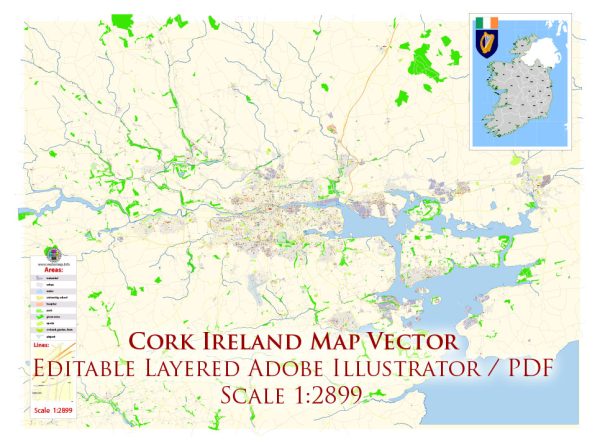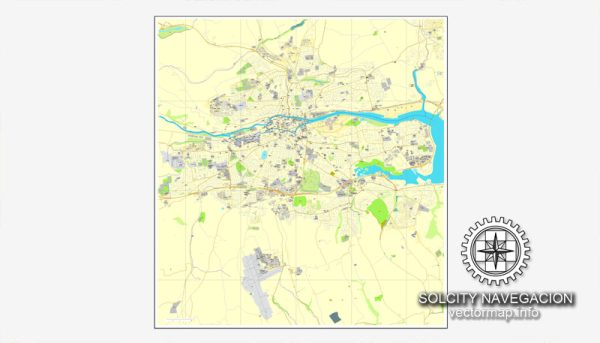Cork, Ireland, is a city with a rich and fascinating history that dates back over a thousand years. Its history is intertwined with the broader history of Ireland, and it has played a significant role in the country’s development. Here’s a brief description of Cork’s history:
- Early History: Cork’s history can be traced back to its founding as a monastic settlement in the 6th century by Saint Finbarr. The city’s name, “Corcaigh” in Irish, means a marsh or a bog, and it refers to the city’s location on the River Lee. Cork initially developed as a trading and fishing port.
- Viking and Medieval Era: The Vikings arrived in Cork in the 9th century and established a trading settlement. The city became an important trading hub in the medieval period, with city walls and fortifications being constructed.
- English Influence: In the late 12th century, English forces under Prince John, the brother of King Richard the Lionheart, took control of Cork. The city became a key strategic location for the English in Ireland.
- The Middle Ages: During the Middle Ages, Cork continued to grow as a center of commerce and trade. It became a major port for goods traveling to and from continental Europe and England.
- Cork City Gaol: The Cork City Gaol, built in the 19th century, stands as a testament to the city’s historical past. It was used to imprison rebels and criminals and is now a museum.
- The Famine: The Great Famine of the mid-19th century had a devastating impact on Cork and the entire country. The city saw a significant loss of life and emigration during this time.
- Irish Independence: Cork played a significant role in the struggle for Irish independence. It was a center of republican activity and was the site of important events during the Irish War of Independence and the Irish Civil War.
- Modern Era: In the 20th century, Cork continued to grow and develop. It became a center of industry and commerce, known for its manufacturing, shipbuilding, and food production.
- Cultural and Economic Hub: Today, Cork is a thriving city known for its vibrant cultural scene, educational institutions like University College Cork, and its status as a major economic hub. It’s often referred to as the “Rebel County” due to its history of rebellion against English rule.
Cork’s history is complex and filled with tales of resilience and change. It has evolved from a small monastic settlement to a bustling modern city while preserving its unique cultural identity. This blend of history and modernity makes Cork a fascinating place to explore and learn about Ireland’s past.



 Author: Kirill Shrayber, Ph.D. FRGS
Author: Kirill Shrayber, Ph.D. FRGS